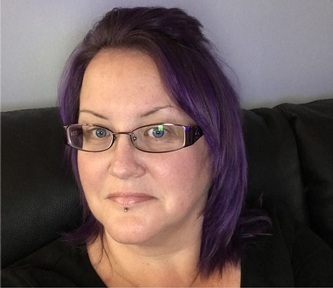UK's first learning disability dementia nurse will help 'huge swathe of people' without support
The UK now has its first learning disability Admiral Nurse, with Dementia UK saying “we were aware of the huge swathe of people who we weren’t really reaching. We weren’t providing support for them”.

Due to advances in medicine and better healthcare, people with learning disabilities are living longer but their risk of getting dementia is higher which has led to a rise in people with learning disabilities under the age of 65 with early onset dementia.
For people with Down’s syndrome, the issue is particularly acute, with a third developing some form of dementia in their fifties.
One in 10 people between the ages of 50-65 with other forms of learning disabilities have dementia, so their risk is lower, but still two to three times higher than the general population.
Victoria Lyons, senior consultant Admiral Nurse at Dementia UK, which trains and supports specialist dementia nurses to work with people with dementia and their families, told homecare.co.uk: “I have a team of dementia nurses all over the UK and the learning disability service is one I wanted to set up.
“Thirty years ago, it was not uncommon for people with learning disabilities especially with Down’s syndrome to not live past their 30s so you weren’t seeing the prevalence of dementia that you do today.
"We know that people are still dying prematurely of learning disabilities, but the life expectancy has increased.
“Here at Dementia UK, we were aware of the huge swathe of people who we weren’t really reaching. We weren’t providing support for them.”
Dementia UK joined forces with the learning disability charity McIntyre to fund the role and appointed Jane Nickels who has 28 years of experience in the care sector. “I was quite clear then that we have the dementia expertise in our house and MacIntyre have got the learning disabilities expertise in their house and if we collaborate and work together and find a nurse who has the ability of knowledge we can support that individual through our support.”
UK's first learning disability dementia nurse will be a 'trail blazer'
“Jane will pave the way to be a trail blazer with this support. It’s a new thing for her and we hope it will springboard this role to support people nationally,” said Ms Lyons.
Over the last few years, MacIntyre has been carrying out awareness-raising work and pushing for earlier dementia diagnoses of people with learning disabilities and ensuring they receive vital support. It has also been training care staff to make sure they know how to support a person who is living with dementia. So a specially trained dementia nurse is the next step in its campaign to improve the lives of people with learning disabilities.
Jane Nickels said: “When I saw the job advertised, I thought, 'I've got to do it!"
"We are focusing on the people supported by MacIntyre who have a diagnosis of dementia, or a suspected diagnosis. If COVID-19 hadn't have happened, I would be going out to meet those people in person, but at the moment it's about getting creative.
“This means a lot of Zoom meetings, speaking to the people we support and their teams, finding out where on the 'dementia pathway' a person might be, learning about the person’s life-story and supporting them to maintain their independence for as long as possible.”
She added: “It's a national role, so I will be covering any area that needs me to help with assessments, to help educate people on dementia, what to look for and provide a link to relevant professionals too."
Ms Nickels revealed that working with people with learning disabilities and dementia has “been a lifelong passion of mine and when you consider the statistics of 1.5 million people with learning disabilities in the UK and that a percentage of them are going to end up having dementia, you start thinking we need to be in that field. We need to be offering some support. Learning disabilities is our newest venture and way of reaching people”.
'I'm passionate about people staying in their own homes'
"The benefits are that my role is flexible to people's needs. Once we start listening to what is needed, we can begin to implement ideas. We can work with the people we support, families and teams to understand what is working and what might not be.
“I'm passionate about people staying in their own homes, if this is something they want to do. It's really important for people who have a diagnosis of dementia to have as many things around them that are important to them and to respect their wishes and rights,” said Ms Nickels.
Latest News
 29-Jul-24
Dementia Bus gives carehome.co.uk staff insight into life with dementia
29-Jul-24
Dementia Bus gives carehome.co.uk staff insight into life with dementia
 01-Mar-24
Find out the top care homes in 2024
01-Mar-24
Find out the top care homes in 2024
 21-Mar-23
UK's top care homes in 2023 revealed
21-Mar-23
UK's top care homes in 2023 revealed
 03-Jan-23
carehome.co.uk launches free care helpline
03-Jan-23
carehome.co.uk launches free care helpline
 13-Dec-22
5 mins with Emily Whitehurst, chief operating officer for Constantia Healthcare
13-Dec-22
5 mins with Emily Whitehurst, chief operating officer for Constantia Healthcare